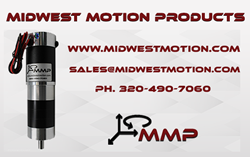DOLL Inaugurates a New Robot Laboratory to Study Developmental Learning
Long term experiments involving robots with differing capabilities and sizes will inhabit this space where they can interact with each other, and explore how to interact with objects in the laboratory.
The new laboratory, L.A.I.R., Laboratory for Affective and Independent Robotics, is a space where robots can learn by exploring their environment. Long term experiments involving robots with differing capabilities and sizes will inhabit this space where they can interact with each other, and explore how to interact with objects in the laboratory.
While much is said about autonomy, today's robots exhibit very little. The majority of which simply perform human programmed repetitive tasks, which involve little or no decision making skills on the part of the robot. Many, so called robots, are actually teleoperated. Additionally, the cost of making robots perform a useful function is a huge barrier to their adoption. Robots should not be programmed to, for example, manipulate objects, they should learn how to be useful. They should be driven by an "intrinsic motivation" to learn and a desire to collaborate.
This work is in the spirit of Alan Turing, who said: "Instead of trying to produce a programme to simulate the adult mind, why not rather try to produce one which simulates the child's? If this were then subjected to an appropriate course of education one would obtain the adult brain. …."
We believe that the next wave in intelligent robots will be driven by robots that exhibit greater independence to act and to learn. The LAIR is our first step in paving the way towards this future. Our robots will be able to learn over long periods of time, in a purpose built laboratory. DOLL is in talks to establish collaborative relationships, which will be announced at a later date.
Dynamic Object Language Labs Inc.
Dynamic Object Language Labs Inc. (DOLL) was founded in 1993. DOLL performs advanced research in the field of Artificial Intelligence and advanced Computer Science including advanced modeling languages and domain specific languages for reasoning about complex systems. DOLL's principle research efforts are in Robotics, Computer Vision, and Cyber Security. For more information, visit https://www.dollabs.com.
Featured Product

Midwest Motion Products is a leading provider of robust and reliable Motion Control Products.
MMP specializes in supplying high-quality Brushed & Brushless DC Motors & Gearmotors for Robotics and Automation Equipment with a wide range of motor windings and gear ratios. With an impressive track record of more than 8,000 released DC Gearmotors designs and over 2,000,000 individual part numbers, we are renowned for our ability to handle large-scale orders. Due to our huge on-hand inventory, we are also well known for lightning-fast delivery of our standard products. We take pride in our dedicated customer service and our team of knowledgeable sales and engineering experts who are ready to assist you with custom design solutions tailored to your specific application. Additionally, we also offer a wide range of complimentary products, such as DC Motor Controls, DC Linear Actuators, AC-DC power Supplies, and DC Servo Amplifiers and others.
